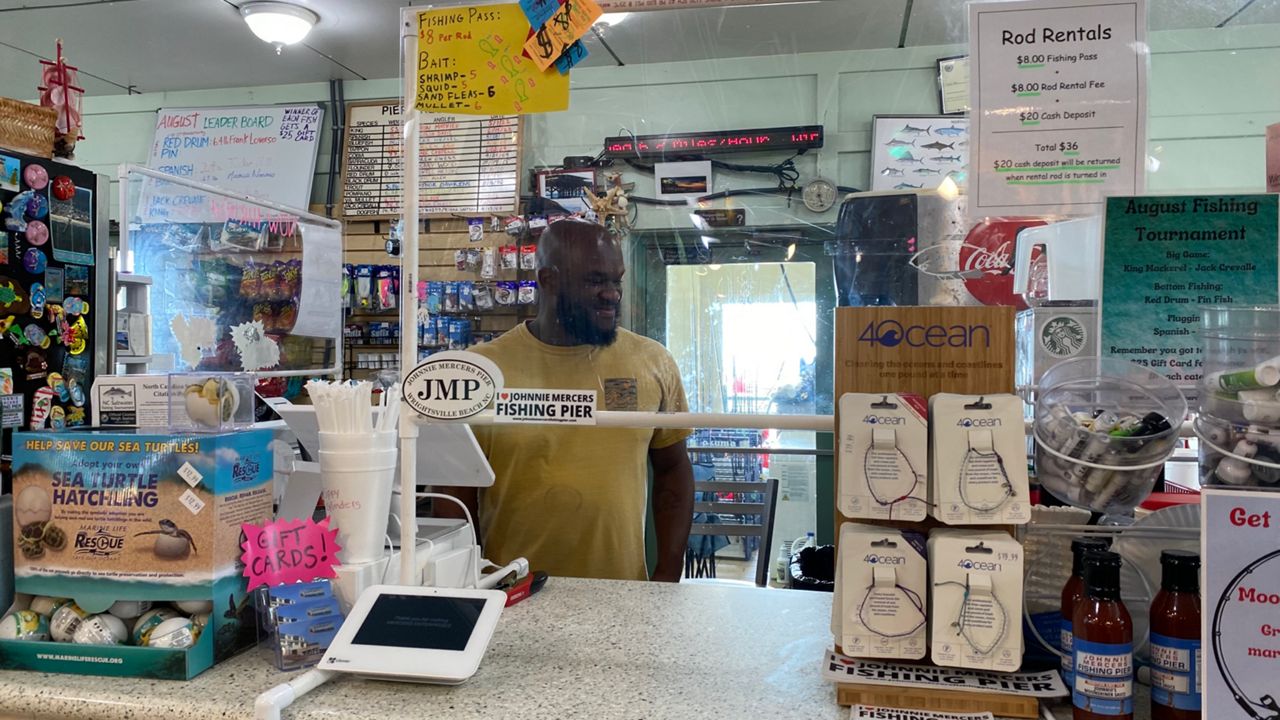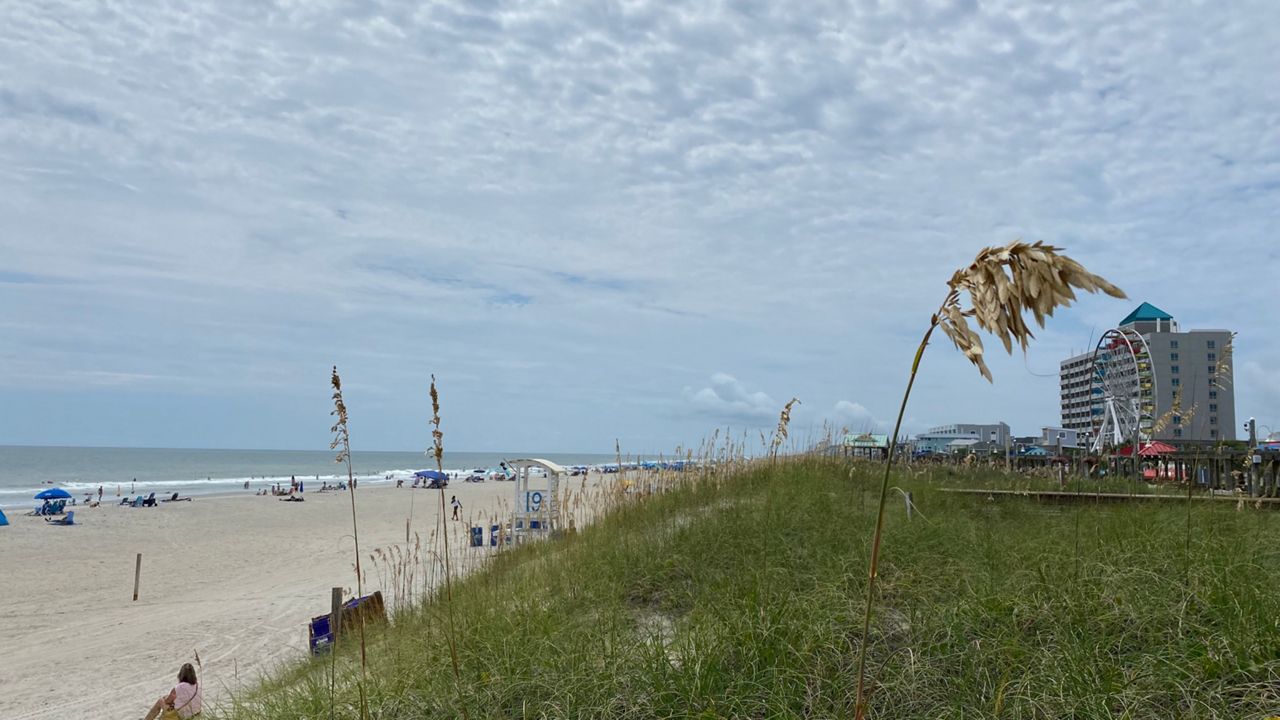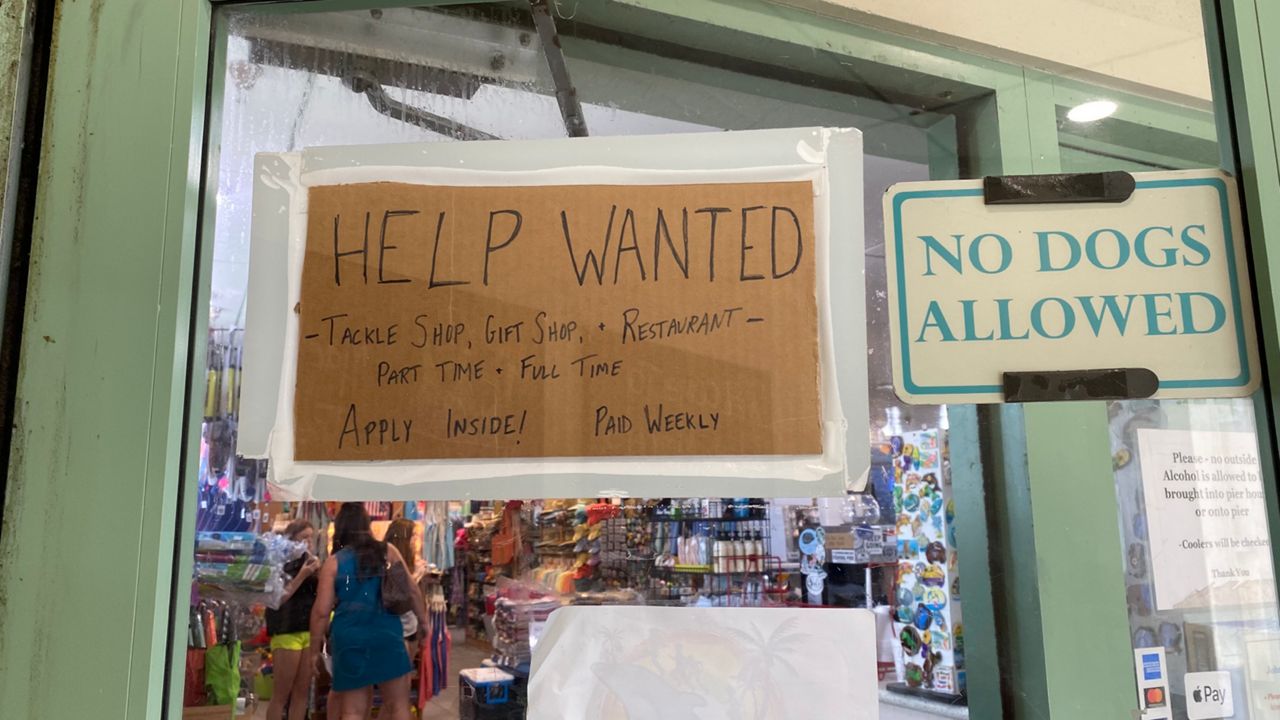WRIGHTSVILLE BEACH, N.C. — “Help wanted” signs are a regular sight on businesses lining the beaches off Wilmington. But despite worries about inflation, gas prices and ubiquitous staffing shortages, it’s been a strong summer tourism season on the North Carolina coast.
“The fishing is probably the best we’ve had in years,” said Matthew Johnson, with the family-owned Johnnie Mercers Pier. Hurricanes have stayed away so far this year and the weather has been just right to bring people down to the beach, he said.
But it wasn’t all good news.
“Staffing was really hard,” Johnson said. Everyone was hiring and employees could take their pick of jobs over the summer. Some employers bumped wages to hire the people they needed and get them to stick around for the summer.
“It’s good for employees,” Johnson said. But he said he has had to work two or three times as hard this summer to keep things rolling at the historic pier in Wrightsville Beach.
Beyond wages, he said, “We’ve gotten more creative.” He said he’s tried to keep people on by giving them better schedules and being more flexible.

A little farther south, on Carolina Beach, Mindy Solaka said she’s been working two jobs most of the summer
“Working down here, I’d say has picked up a lot this year,” she said, sitting behind the counter at an electric bicycle rental store. “It’s definitely revived the past couple years.”
She said she’s worked for years along the beaches in New Hanover County. Since COVID-19, she said, a lot of people, including herself, have started working for companies like Uber, Instacart and Grubhub, which only compounds the competition for workers.
“It’s everywhere, you just really can’t keep people,” she said. “They’ve never really paid very high, but I think they see they need to step that up to compete.”
“There’s still a labor shortage going on out there,” said Kim Hufham, president of the Wilmington and Beaches Convention and Visitors Bureau.
“Something is going to have to be done about wages,” she said, adding that the Convention and Visitors Bureau raised pay for its hourly workers.
“We’ve seen a lot of our hotels and especially restaurants be creative,” she said, by shrinking menus or reducing hours. “The workforce shortage is a big issue.”
The Outer Banks have been seeing the same staffing problems.
“A lot of people left the workforce and just didn’t come back,” said Lee Nettles, executive director for the Outer Banks Visitors Bureau.
“We just didn’t have enough workers,” he said, forcing some businesses to close some days or reduce hours.
The Outer Banks rely more on international workers in the summer than businesses in the Wilmington area. Those international workers couldn’t get to the United States during COVID, but some started coming back this year, Nettles said.
But he did say this year wasn’t as difficult as 2021.
“It’s been nice to get closer to a normal year,” he said. “While everyone’s been very busy, it seems a bit more manageable.”
Coming out of the first year of the pandemic, both the Outer Banks and the Wilmington area saw banner years for tourism. Those numbers, measured by how much the counties collect in occupancy tax, have stayed high.
The other big challenge for beach businesses this year has been inflation.
Back at Johnnie Mercers Pier, they make money from fishing, but also have a grill and a shop selling tackle and gifts. Johnson said he has tried to keep the prices low for things like hats and T-shirts, making less off each item but hoping people will buy more overall.

“Inflation is kind of crushing things,” Johnson said. “Food is the most volatile thing in that equation.”
On Wednesday morning, a sign on the grill at the pier said they were only serving pizza and ice cream.
Hufham said the high gas prices earlier in the summer did not keep people away from the beach.
“Our No. 1 feeder market is the Raleigh-Chapel Hill-Durham area, so even when gas prices go up, we’re still a tank of gas away,” she said. “We’ve been very fortunate.”
Gas prices in North Carolina hit a high of $4.67 a gallon for regular on June 10, according to AAA. The statewide average has dropped by more than $1 per gallon. AAA said the average for a gallon of regular Wednesday was $3.57.
Gas prices did not appear to keep people away from the Outer Banks either, since many vacation homes there are rented months in advance.
Despite all the challenges with staffing and price increases, it’s still been a good year for tourism on the beach.
“The weather’s been really nice for us, and we’ve just had a really good summer,” Hufham said. “Our restaurants have been doing well, our hotels have been doing really well.”
As the summer begins to wind down, Nettles says he hopes people will continue to be patient and considerate while they're on vacation.
"We ask our visitors to take an extra breath and enjoy where they are," he said. "Be patient with businesses and one another."



